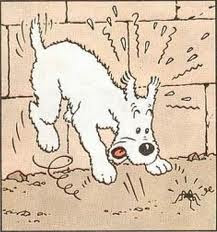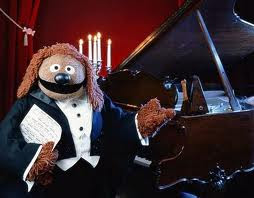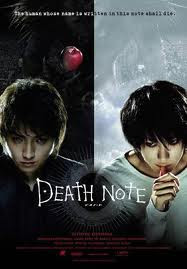Recently I ran across this question: Is cursing necessary in writing? I thought it was an interesting question.
I wouldn't say cursing was necessary but the frequency with which it appears in texts throughout our written history indicates that cursing is a part of our everyday speech as well as our entertainment (whether you like to hear it or not). Even the eminent William Shakespeare was fond of a good curse or blasphemy, although many readers may not recognise them as such.
- "'sBlood" - God's blood
- "sWounds" or "'zwounds" - God's wounds
- "Firk" - meaning "fuck"
- "Sluic'd" - meaning "fucked"
- "Out, damn'd spot!" - referring to blood or the reddening of hands through murder
- "What the dickens?" - referring to Satan, as in "What the devil?"
- "What the deuce?" - referring to Satan, as in "What the devil?"
And if his quick cursing wasn't fit to entertain he would write insults and black observations like these:
- "So, so, thou common dog, didst thou disgorge thy glutton bosom."
- "Have you no modesty, no maiden shame, no touch of bashfulness?"
- "He daily doth frequent with unrestrained loose companions."
- "Her beauty and her brain go not together."
- "He will fence with his own shadow."
- "He shall die a flea's death."
- "Damn her, lewd minx!"
- "Base dunghill villain, and mechanical, I'll have thy head for this."
- "There's many a man hath more hair than wit."
- "Out of my sight! Thou dost infect my eyes."
- "Many a man there is (even at this present, now, while I speak this) holds his wife by th' arm, that little thinks she has been sluic'd in 's absence and his pond fish'd by his next neighbour, by Sir Smile, his neighbour."
Oh, I could go one for absolutely ages...
As for Chaucer... Wow. Really, just wow.
He didn't just use swear words, blasphemy and foul language. No, he was one for xenophobic insult as well. If you manage to get past the Middle English (some words are still the Old English versions while some would be used for years to come as Middle English and our English) to tackle the text for its content then you will find an incredible amount of swearing, bawdiness and insults. And it is what gives his characters depth and believability because most are the likes of cooks, merchants, millers or knights: the ones you'd expect such words and behaviour from. Besides, you simply cannot tell a bawdy tale properly without using curse words, innuendo, insults or double-entendre.
- “Sir Parrishe Prest,” quod he, “for Goddes bones telle us a tale … by Goddes dignitee!”
- "For Cristes sake, ne swereth nat so synfully in dismembrynge of Crist by soule, herte, bones and body. For certes it semeth that ye thynke that the cursed Jewes ne dismembred nat ynough the preciouse persone of Crist, but ye dismembre hym more."
- "The cursed Jewes"
- “By God! I hadde rather than my sherte.”
- “I-blessed be thy breche and every stoon”
- “O leeve sire shrew, Jhesu shorte thy life!”
- “By Godes herte!”
- “For Cristes peyne,” “for Cristes passioun.”
- Our Host gan to swere as he were wood [mad]; “Harrow!” quod he, “by nayles and by blood!”
- "shitten shepherd and clene sheep"
Does this sound less impressive than "fuck"? It isn't. These manage to insult in far worse ways than by crudely referencing sex or that someone is unlikeable. These lines go straight for what is most important to many of the era: religion. Oh, that isn't to say that Chaucer never used terms meaning something similar to "fuck" because he surely did. Multiple times. Or he'd just write this:
"Derk was the night as pich, or as the cole,
And at the window out she putte hir hole
And Absolon, him fil no bet ne wers,
But with his mouth he kiste hir naked ers
Ful savourly, er he was war of this."
(I'm definitely leaving this untranslated or it becomes a little too rude for the younger readers.)
All this from an English poet of the medieval era said by Thomas Hoccleve to be “the first finder of our fair language.”
So if the two greatest writers we know; Chaucer who helped establish Middle English and wrote down many words never before seen in manuscripts (it is unsure if he invented them) and Shakespeare who invented more words than any other writer and has become a, if not the, figurehead of English literature, used cursing on a regular basis to add colour to their works as well as humour, cynicism and black wit then it is fairly safe to say that cursing, although not necessary, definitely has its place in literature.

Personally, I think that if it is used in everyday speech then it can and sometimes should be included in dialogue as it adds depth and realism to the characters. But as with everyday speech, overuse is off-putting. I do tend to swear a great deal myself but I blame my woodworking and tomboy past for that (trust me, any craft where a final cut or assembly is done wrong means you've lost a stack of money, time, effort and supplies will make you swear a blue streak similar to and sometimes worse than that done by your average sailor). Still, in my writing I tend to be a bit conservative. In my latest manuscript I made every single swear word or curse appear in another language: Croatian, French etc. An amusing result is that the swearing has gained a touch of class and has about the same impact on a reader as when you hear cursing in a foreign language and just have to find out what it is. Also, I have only used one curse more than once. The rest are all distinct in their application, appropriate to the moment.

Variety is the key, as you know if you frequently swear a blue streak. It isn't worth the time of effort to include swearing in your work if you just use the word "fuck" two hundred times. It is boring more than anything else and we all know what happens to boring reads. It also isn't worth the effort if you place it unnecessarily. By this I mean, if a character isn't saying it then it can probably be cut as narrators don't tend to swear unless they are actually one of the characters. If a character swears too much - your readers will let you know or you may be able to tell yourself - then cull it back. In the case of swearing less is more. Limited and appropriate use, such as when a character is anger, lascivious, shocked or insulting someone, is more impressive than overuse or consistent use. Swearing can also be used to set scenes, establish authenticity in a gritty world and generally lower the tone, which can be required for some stories to read true. You wouldn't write a book on gangsters without including swearing. It just wouldn't ring true because we expect gangsters to swear.
So, while not necessary for the most part I'd say that cursing in fiction is here to stay and has its place, one easily defended. Use it wisely and you'll see your characters become real, understandable and sometimes sympathetic. Use it badly and you'll turn your readers away.























































